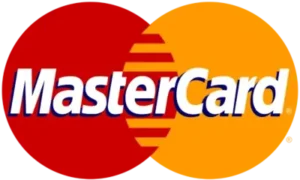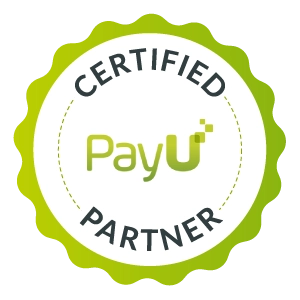20 Effective Digital Marketing Tips for Nutritionists Looking to Expand Their Reach

Nutritionists tend to face the following problems:
The Issue of Visibility: How do you promote your practice in a market overflowing with other similar practitioners?
The Task of Client Acquisition: How do they find your value and seek it in your services’ form and type?
Digital Overwhelming: How do you navigate the world of social media, website promotion, and unique content?
Purpose and Goals
- Seek Guidance
- Willingness to Expand
- Value Professionalism
The Approach: Creating Tailor-Made Marketing Strategies
- Personalized messaging: Create content aimed at their problems and respond to their purposes and goals.
- Active learning: Produce educational content as they see in the role of a professional teacher who simplifies intricate subjects.
- Expert communication: Be honest and transparent about your knowledge and the work that shows you have good advice for your clients.
SEO Basics for Nutritionists:
Understanding SEO search engine optimization involves optimizing your website and its content to appear at the top of search engine result pages. As a nutritionist, SEO can drive the majority of your online presence.
On-Page SEO
Keyword Research – Find keywords that are relevant to nutrition, wellness, and your services. tools like Google Keyword Planner or Uber Suggest can help. Use your keywords in your content to make sure they don’t look too much like keywords. The use of user intent as a basis for identifying keywords is recommended.
Optimized Content – Create high-quality, helpful content that uses the target keywords naturally. It’s a good idea to balance using your keyword and ensuring your content is easy to read.
Meta Tags – Your website’s pages should have an optimized meta title and description. Meta tags should include your focus keyword and a compelling call to action.
URL Structure – Use short, clear, and keyword-rich URLs—for instance, www.nutritionistwebsite.com/nutrition-tips-for-weight-loss.
Mobile Optimization – Make sure your website is mobile-friendly, as Google prioritizes mobile-responsive websites.
Page Speed – Optimize your images, minimize code, and cache your pages.
Supplementary Technical SEO Factors: Use an SSL certificate to optimize your site for HTTPS & Use schema markup to help search engines better understand your content.

Local SEO
Google My Business – Claim and optimize your Google My Business listing to ensure your business is found during local searches.
Local Keywords – Utilize location-specific keywords such as nutritionist in [city].
Online Reviews – Encourage satisfied customers to leave positive feedback on Google.
Off-Page SEO
Backlinks – Generate high-quality backlinks from authoritative websites.
Social Signals – Engage in social media, posting, interacting with followers, and encouraging social sharing.
Influencer Marketing – Use influential figures in the health and wellness realm.
Monitoring and Adjusting
Google Analytics – Use Google Analytics to assess the quality of your content, traffic, and conversion data.
Keyword Ranking – You can track your focus keyword’s position in SERPs. However, adaptation also has a place in SEO. With an ever-changing algorithm, ensure that your websites adapt to these changes.
Local SEO for Hyperlocal Marketing
Google My Business: Claim Your GMB Listing. If you have not claimed your Google My Business account, do so immediately. Also, ensure you provide accurate and detailed information about your nutrition practice.
Business Hours and Contact Details: Make sure that your business, phone number, and address are valid and up to date.
Photos and Videos: Your clinic, team, and services should be represented accurately. It means that you should have high-quality images.
Reviews and Rating: Ask your clients to post a good review of your nutrition practice; any unfavorable review is an opportunity to make you and your services better.
Local Keywords
Location-Specific Keywords: Optimize your web content with keywords containing your city or neighborhood. For example, “nutritionist in [city]” or “dietitian near [neighborhood].”
Hyperlocal Content: Local events, health fairs, or nutrition workshops can be an excellent topic for a blog post or video.
Online Directories and Listings
Niche Directories: Publish your profile in directories related to health and wellness. Make sure that the profile is complete and consistent across all platforms.
Local Listings: Don’t forget to list your clinic on websites and directories like Yelp, Yellow Pages, and Bing Places for Business.
Backlinks from local sources
Local Partnerships: Attempt to partner with the local gym, wellness center, or healthy food store. Ask these websites to exchange backlinks or guest posts.
Local News and Blogs: Contact local journalists and bloggers; offer to write a nutrition article about how to make a healthy meal or maintain a diet.
Community Engagement
Local events: Attend health fairs and other local events. Also, try to go to workshops related to health and nutrition; you can meet your potential clients there.
Sponsorship:
Consider sponsoring the local football team or animal shelter’s charity, and people will start recognizing your brand.
- Email Marketing Strategies : Building an Email List
- Website Sign-Up Forms: Place a sign-up form on your website to collect email addresses from interested people.
- Freebies, workshops, and events: Collect emails during nutrition workshops, webinars, or health fairs. Add an email subscription section to your free reports, checklists, and e-books.
- Segmentation by interest: divide your email list by topic or interest with freebies; e.g., weight loss, sports nutrition, prenatal health.
- Segmentation by clients: divide your email list by time on the path of the customer journey; e.g., new clients, long-term clients.
- Personalization: personalized subject lines with the receiver’s name or preference and tailored content according to freebie or conversation.
- Content type: educational newsletters, updates, recipes, success stories, and relevant thoughts, promotions, and offers, etc.
A consistent schedule means you decide how often you will send newsletters, i.e., weekly, bi-weekly, etc.; consistency is critical to build anticipation and trust. - A/B testing: test different types of subject lines or content formats to understand open rates and other relevant metrics.
- A call-to-action should be clear and have an impact to drive the customers; limited offers create urgency based on deadlines.
- Collaborate and Network
- Local Gyms and Fitness Centers: collaborate for workshops and gym-based wellness programs that attract new clients for both of you.
- Wellness events: attend collaborative health and wellness events, marketing campaigns, and wellness expos; network to get more clients.
- Health Food stores: events and promotions together with health food stores and their online stores.
- Guest posting: Inviting guest writers on the blog or becoming a guest writer on other relevant blogs for a larger audience.
- Industry Blogs: Post expert opinions and advice on industry-specific blogs or nutrition-centered platforms. Some sites may also pay you for your contributions.
Networking Events
- Industry conferences: Participate in conferences concerning nutrition, health, and well-being. Socialize with others who share your profession and learn about the newest industry trends so you can stay updated.
- Local meetups: Join small business people or health-oriented meetups in your locality. Share your ideas and experiences with other like-minded individuals.
- Referral Partnerships
- Healthcare professionals: Associates with doctors, dietitians, therapists. Let them refer their patients to you so that you may provide them with your specialized nutritional advice.
- Fitness trainers: Team up with a fitness trainer to include a holistic wellness plan.

Online Communities and Forums
- LinkedIn groups: Participate in LinkedIn groups that focus on nutrition. Talk and share your opinion.
- Online forums: Visit nutrition forums or Q&A websites. Answer people’s queries to ensure you are established as a professional.
Tracking and Analytics - Google Analytics: Website traffic: Your blog’s visitors should be checked after an interval. Which blog post is high traffic and from there, your blog visitors are coming? User behavior: See your blog visitors’ behavior with bounce rate, pageview, and conversion path.
- Conversion tracking: you can track your conversion goal.
- Click-Through Rates: It involves tracking how many of your email recipients click on the links you include.
- Conversion Metrics: It also includes closely monitoring how many of your email recipients book consultations.
Adaptation - Stay Updated: Remember that SEO algorithms will change, and there is always a new digital marketing trend. Keep learning and updating your practices.
- Learn from the Data: Do not forget to analyze your collected data to make informed choice.
Conclusion
There you have it: a practical guide to digital marketing for nutritionists. There is a massive amount of information shared, ranging from getting to know your core audience to developing a solid strategy around what you are most passionate about, and that is just the beginning. Remember, these algorithms, techniques, and core concepts are not arbitrary or confined to a computer.
You are interacting with genuine individuals, trying to demystify the path they are walking. Go forth, nutritionist! Show the world your passion, vision, and inspiration. Your reach is not confined to a computer screen.













